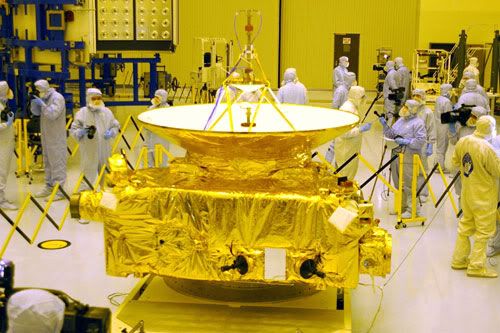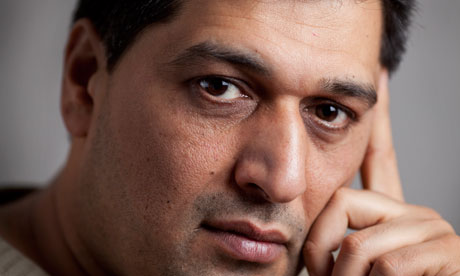Whether you try to hide it or not, you fart. Everybody does.
But even though it's such a routine activity — the average person farts between 10 and 20 times per day — there's a lot about farting that you might not know. As part of research into the microbiome — the rich community of bacteria that live throughout your body — scientists have learned all sorts of interesting things about the bacteria that produce gas inside your intestines. Here are 9 crucial things to know about flatulence. 1) You produce about 500 to 1500 milliliters of gas per day, and expel it in 10 to 20 farts
This might be more than you'd expect, but it's been measured in controlled studies. The surprisingly hefty amount is the result of bacteria that live in your colon and feed on most of the food you eat, says Purna Kashyap — a gastroenterologist at the Mayo Clinic who studies the gut microbiome. "There are a lot of carbohydrates that we consume — mainly present in vegetables, grains, and fruits — that our bodies don't have the enzymes necessary to digest," he says. "These end up in large intestine, where microbes chew them apart and use them for energy, through the process of fermentation. As a byproduct, they produce gas."
A huge variety of foods contain these complex carbs that we can't fully digest: virtually all beans, most vegetables, and anything with whole grains. For most people, this leads to somewhere between 500 to 1500 milliliters of gas daily — the equivalent of half a two-liter bottle of soda, every single day.
2) 99 percent of the gas you produce does not smell
One of the reasons that we produce so much more gas than we realize is that nearly all of it is odorless. Hydrogen, carbon dioxide, and methane make up as much as 99 percent of the gas produced in our large intestines by volume. (They're supplemented by air you swallow — more on that below.) All of these gases are odorless, which is why much of the time, farts don't actually smell at all.
The potent stink, research has found, is largely due to the 1 percent or so of compounds with sulfur in them, such as hydrogen sulfide. (This sort of research itself is pretty amazing: one experiment involved two people judging the smelliness of farts of 16 participants who'd been fed pinto beans, collected with the aid of "gas-tight Mylar pantaloons.") Bacteria need to consume sulfur to produce sulfurous gases, and though not all foods with complex carbs contain sulfur, many do. They're mainly foods that you probably already associate with farting — things like beans, onions, cauliflower, Brussels sprouts, broccoli, and dairy.
3) Gum and soda can make you fart more
Apart from the gases produced by bacteria, a significant proportion of your flatulence is simply made up of inadvertently swallowed air. It doesn't smell — it's mostly nitrogen and oxygen — but it sounds and feels the same coming out.
Some of this swallowing goes on while you're asleep, but it can be increased by drinking carbonated beverages (after all, you're ingesting the carbonation) and by chewing gum.
4) Farting is the result of a healthy, complex ecosystem in your intestines
Bacteroides fragilis, one of the bacteria species involved in gas production, cultured in a petri dish. (Nathan Reading) Modern society views flatulence as a negative. This is unfortunate, because in most cases, it's the byproduct of a beautiful thing — the intricate ecosystem of bacteria living in your intestines.
"It's a complex ecology, with various organisms coexisting and thriving," Kashyap says. "When a complex carbohydrate reaches your colon, some bacteria will break it down first, and then some of their byproducts will feed other bacteria. The whole community benefits from a single carbohydrate that you consume."
What's more, you also benefit. Scientists are still unraveling the role of the microbiome in digestion, but it's known that the same bacteria that produce gas also generate vitamins and fatty acids that help maintain our colon lining, and may support our immune systems. 5) There's a simple reason why you don't mind the smell of your own farts
As this AsapScience video explains, experiments have confirmed that we find the smell of our own farts less offensive than others'.
The reason: we become habituated to all smells over time. That's why you might notice a scent walking into a stranger's house, but seldom do for your own. It's also why you become habituated to the characteristic mix of odors produced by the bacteria inside your own body, which differs slightly from everyone else's. As a result, your own farts just don't have the same impact on you — even though they're just as pungent for everyone else.
6) Yes, you can light a fart on fire
Because flatulence is partly composed of flammable gases like methane and hydrogen, it can be briefly set on fire.
We don't recommend it, because of the risk of injury, but if you have to see it, there are plenty of examples here. 7) No, you can't hold a fart in until it disappears
This might seem obvious, but for whatever reason, people wonder about this question. At times, after holding in a fart for a while for social reasons, it can seem to disappear. However, this isn't actually possible. It might seem to vanish because you stop being conscious of it, and it leaks out gradually, but the physics of flatulence are pretty straightforward. A fart is a bubble of gas, and there's ultimately nowhere for it to go besides out of your anus.
8) Beano cuts down on gas production by starving these bacteria
In case you're wondering, the over-the-counter product Beano — which claims to "prevent gas before it occurs"— actually works as advertised. Two different controlled trials have found that it significantly reduces gas production in the hours following a bean-filled meal. The way it works is pretty simple: the pills contain an enzyme called alpha-galactosidase that cuts complex carbohydrates into shorter, simpler carbs that are much easier to digest. As a result, they get broken down in your small intestine, rather than making it all the way to the large intestine, where bacteria would ferment them, producing gas. However, there's a drawback to habitually taking Beano to prevent gas.
9) Starving your fart-producing bacteria is not a good idea
Bacteroides fragilis, one of the bacteria species involved in gas production. (Centers for Disease Control and Prevention)
For most people, actively trying to limit your gas production isn't necessary, Kaskyap says. The amount you produce is the result of both your balance of gut bacteria and diet, and unless you're experiencing other sorts of problems — such as painful bloating — it's not wise to mess with it.
"The knee-jerk reaction, for many people, is to stop eating things that produce gas," he says. "But these foods, which have complex carbohydrates, are nutrition for the bacteria in our gut. You don't want to starve them unless there's a good reason."
Additionally, he notes, many people who believe they suffer from excessive gas production actually just have trouble with the flow of that gas through their intestines, perhaps due to constipation. Or, they might make the same amount of gas but emit it more frequently, in smaller doses. In either case, Kashyap says, "by changing your diet, you're not solving the problem and may in fact be harming yourself."
Of course, there are exceptions here: if you produce truly excessive amounts of gas or experience painful bloating, it could be a sign of a problem — such as lactose intolerance — and you may want to see a doctor.






















/cdn0.vox-cdn.com/uploads/chorus_asset/file/2518446/shutterstock_162759830.0.jpg)
/cdn0.vox-cdn.com/uploads/chorus_asset/file/2518380/shutterstock_234766888.0.jpg)
/cdn0.vox-cdn.com/uploads/chorus_asset/file/2518440/1280px-Bacteroides_fragilis_on_Fastidious_Anaerobe_Agar_-_Sensitive_to_Metronidazole_-_Detail_-__1_.0.jpg)
/cdn0.vox-cdn.com/uploads/chorus_asset/file/2518378/shutterstock_152023442.0.jpg)
/cdn0.vox-cdn.com/uploads/chorus_asset/file/2518436/11198_lores.0.jpg)












